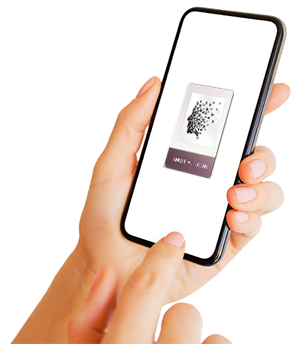Fear of making mistakes
Here you find background information, a fear test and an effective approach to treating the fear of making mistakes.

Fear of making mistakes definition
6 minutes reading time.
Fear of mistakes Definition
Fear of making mistakes is expressed in the desire to avoid all actions, plans and decisions in order to avoid the risk of making a mistake. It leads to insecurity and inhibitions in social situations and when making important decisions. Mistakes are associated with disproportionately large negative consequences. It can also be based on the fear of embarrassing oneself. Consequently, they try to do everything right.
The fear of doing the wrong thing is particularly strong in the case of private and professional decisions that cannot be reversed or whose far-reaching consequences cannot be estimated. The fear of making mistakes can lead to an inability to make decisions or take action.
Fear of making mistakes – symptoms
People who are afraid of making mistakes automatically do not appear as self-confident and competent as others, but instead radiate their insecurity. The urge to be perfect and behave correctly leads to excessive demands – and this is then also noticeable to others. If you feel helpless and nervous even though there is no objective reason for this in the situation, you may be afraid of doing something wrong. The fear of making mistakes can sometimes even lead us to weigh every word and every movement we make on the gold scale, fearing that the other person might take it negatively and misunderstand us. Unfortunately, this anxious attitude, which expects negativity from the outset, is an invitation for others to confirm this expectation if they don’t mean well by us. Someone who is afraid of making mistakes can therefore more easily become a victim of other people’s displeasure and criticism. This is because other people can sense, albeit unconsciously, that we don’t have much confidence in ourselves and are not convinced of ourselves and our abilities.
Anyone who is afraid of saying or doing the wrong thing also fears criticism from others and makes their value dependent on what others think. The fact is that mistakes are part of life. Without them, we wouldn’t learn anything. Only when we fail at something and then look for a better method or simply try again can we achieve something. The obstacles we overcome along the way are what make us successful. But if you are afraid of failing, you block yourself. Then it is impossible to move forward and develop, be it professionally, personally or interpersonally.
The fear of making mistakes paralyzes us and makes us passive. Perhaps you have already experienced being faced with a decision and not knowing which is the better option for you. Out of fear of making the wrong choice, the decision is postponed. Sometimes this happens until the decision is taken away from you and becomes obsolete. Then the matter is settled, but unfortunately an opportunity has also been lost.
Testing out possibilities and seizing opportunities often requires a certain amount of courage. However, fear and courage are mutually exclusive. Courage inspires, while fear slows you down and can even bring you to a standstill. Then you fall into the same patterns and habits. But if we don’t dare to try something new, no development takes place. However, the world around us is constantly changing, everything is in a constant state of flux. The fear of making mistakes can lead to withdrawal. As a result, we feel excluded and isolated. Through avoidance behavior, we want to protect ourselves and create a sense of security. We know our way around our own four walls, for example. And if you are afraid of making mistakes in your private or professional life because you would then feel exposed or embarrassed, you will avoid situations where this could happen. The fear of doing something wrong can therefore go so far as to restrict normal life and perhaps even make it impossible. It is not uncommon for this to result in depressive moods. If it persists for a longer period of time and causes a great deal of suffering, it can eventually manifest itself as an anxiety disorder.
However, milder forms of fear of making mistakes are more common. And basically, the fear of making a mistake is something completely normal that everyone has experienced at some point. Nobody is immune to the fear of making mistakes, because you never stop learning. Making mistakes means learning and we are constantly experiencing new situations that we have never been in before and for which we cannot always prepare ourselves, even in theory. It is therefore all the more important that we are not afraid and do not stand in our own way.
Everyday situations in which we fear that we might make a mistake, for example because something is particularly important to us or because something is at stake, cause our adrenaline levels to spike and lead to clammy hands, sweating, trembling, a dry throat or even blushing. These are unusual or unfamiliar situations in which we feel that we don’t have everything under control, that we can’t assess everything accurately and that we are excited and nervous.
However, the general fear of making a mistake is not only acute and consciously perceptible, but also influences our behavior in general, so that we are no longer even aware of its influence on our lives and consequently do not question it at first. This subliminal attempt to avoid mistakes, to do everything right, perhaps to please everyone else and to fulfill external expectations so as not to be vulnerable, also leads to more subtle symptoms such as stomach aches or headaches.
Fear of making mistakes – causes
As a rule, the first signs of the development of fear of making mistakes can be found in childhood, for example due to emotional abuse and interference from parents. This parental behavior causes the child’s own aspirations and beliefs to be questioned and pushed far away. The resulting aggression towards the parents is turned into obedience in order to maintain harmony. Inhibitions arise to follow one’s own feelings or to assert one’s own head.
Fear of making mistakes therapy
But whatever fear you have inside you, you can resolve any fear. Even the fear of making mistakes. If you do this, not only will the fear be gone, but the blockages will also fall away.
Dissolve fear of making mistakes
So that you can be sure that you really do have a fear of making mistakes, we offer you a free fear of mistakes test here. You can use it to check whether you really have the fear within you.
Fear of making mistakes – test
You will find the fear test in the blue circle at the bottom right of the screen. If you click on it, it will open and you can start immediately. Free, without advertising and without registration!
You start by entering “fear of making mistakes” in the fear test. Once you have found what you are looking for, you can treat the fear with our “Fear Therapy” app. The link can be found below the test. The app works without confrontation and without traveling into the past and is really simple. So you don’t need to be afraid of the treatment itself.
Once you have resolved the fear of making mistakes, use the test to check yourself for the following elements, as fears can usually arise in a complex. Once you have found one, treat it again. Incidentally, you can use the app for the rest of your life and can also use it to work through any other issue in depth!
- The fear of being responsible
That’s it already. Start today, it’s easier than you think! And resolving fears always has a very liberating, calming and relaxing effect.
WHOEVER DOES NOT RESOLVE THE CAUSES IS ONLY WORKING ON SYMPTOMS!
“Thinking will not overcome fear, but acting will.”

Fear Therapy
Effective fear treatment in an app!
Effective content and techniques for treating fears/anxiety.
Thoroughly dissolve any fear, including the associated negative cognition/belief!
No direct confrontation (exposure) with the fear!
Also deals with individual cognitions and all other emotions such as shame, sadness, hate, anger, etc.
Buy the "Fear Therapy" app now for just 19.99 Euros!
Available in the Apple™ App Store or in the Google™ Playstore.


For all questions ...
... please do not hesitate to contact us. Whether it's a question of understanding, product details or questions about treatment.
We are happy to help!

“The highest happiness of man is liberation from fear.”
Walther Rathenau, (1867 - 1922), Politician, writer, industrialist 1922



